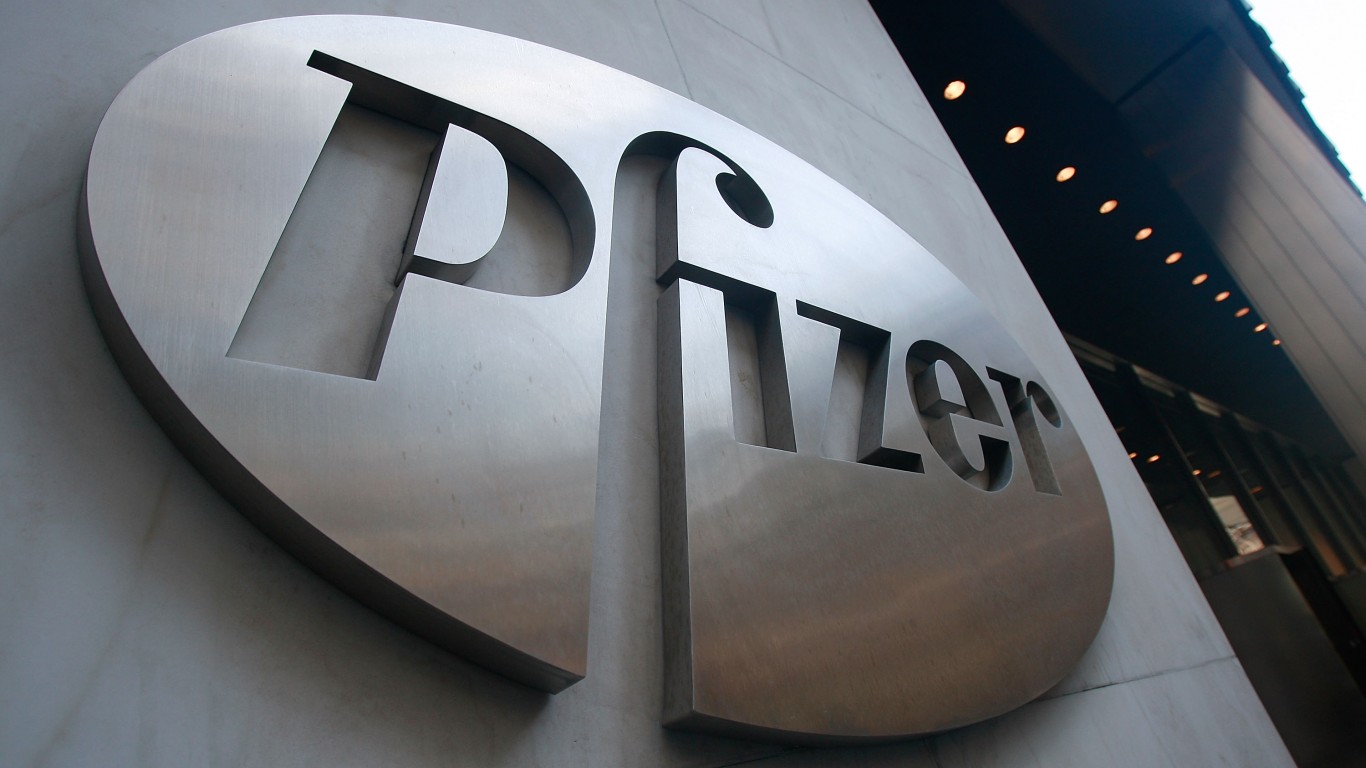
Pharmaceutical companies usually are involved in a lengthy process of getting their drug candidates to market through clinical trials. There is a fair amount of risk involved, should a study come back negative or a candidate not be approved. Conversely, if a drug gains FDA approval or passes a clinical trial, there can be big upside.
The White House has promised reforms in the health care sector, such as changing the bidding process for drugs and shortening the FDA approval process. It is yet to be seen how much headway it actually can make with these reforms.
Keep in mind that short sellers betting against big pharma are taking on an added risk. They have to pay out the ongoing high dividends on top of the cost of borrowing the shares.
The February 14 short interest data have been compared with the previous figures, and short interest in most of these selected pharmaceutical stocks decreased.
Short interest in Pfizer Inc. (NYSE: PFE) shrank to 58.67 million shares from the previous 61.03 million. The stock was trading at $34.72 Thursday morning, within a 52-week range of $33.71 to $44.56.
The number of Merck & Co. Inc. (NYSE: MRK) shares short decreased to 22.56 million from 25.33 million in the previous period. Its shares were trading at $79.94, in a 52-week range of $72.23 to $92.64.
Bristol-Myers Squibb Co. (NYSE: BMY) saw its short interest fall to 61.29 million shares from the prior reading of 63.72 million. Shares traded at $62.04, in a 52-week trading range of $42.48 to $68.34.
The number of shares short in AbbVie Inc. (NYSE: ABBV) increased to 79.02 million from the previous 74.74 million. The stock was trading at $88.41, and its 52-week range is $62.66 to $97.86.
Eli Lilly and Co.’s (NYSE: LLY) short interest decreased to 12.25 million shares from the previous 12.57 million. The stock was trading at $133.53. The 52-week range is $101.36 to $147.87.
Take Charge of Your Retirement In Just A Few Minutes (Sponsor)
Retirement planning doesn’t have to feel overwhelming. The key is finding expert guidance—and SmartAsset’s simple quiz makes it easier than ever for you to connect with a vetted financial advisor.
Here’s how it works:
- Answer a Few Simple Questions. Tell us a bit about your goals and preferences—it only takes a few minutes!
- Get Matched with Vetted Advisors Our smart tool matches you with up to three pre-screened, vetted advisors who serve your area and are held to a fiduciary standard to act in your best interests. Click here to begin
- Choose Your Fit Review their profiles, schedule an introductory call (or meet in person), and select the advisor who feel is right for you.
Why wait? Start building the retirement you’ve always dreamed of. Click here to get started today!
Thank you for reading! Have some feedback for us?
Contact the 24/7 Wall St. editorial team.
 24/7 Wall St.
24/7 Wall St.


